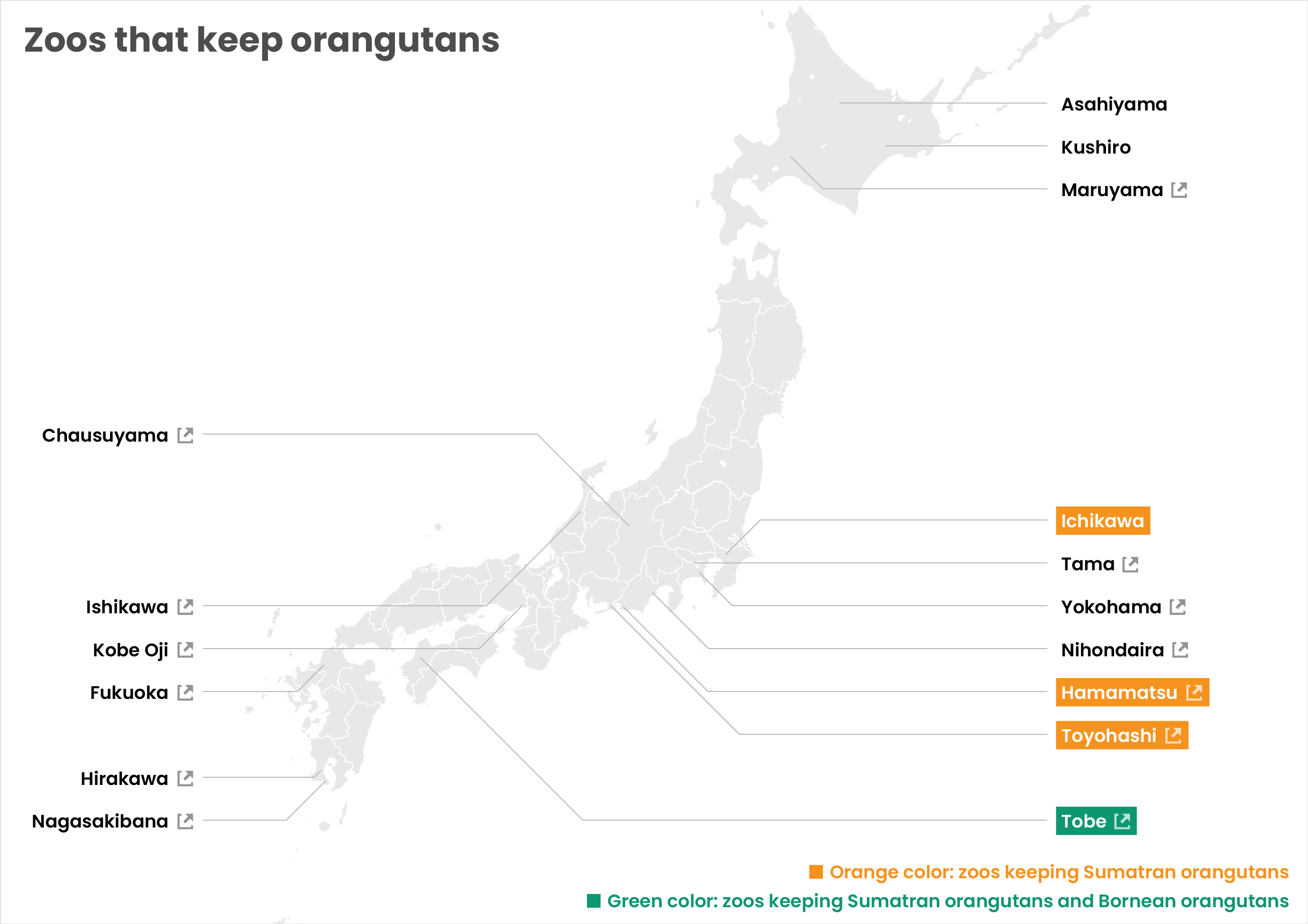Zoos play an important role in connecting wild animals living in the forest with people living in the city. Our former orangutan breeder from the Japan Orangutan Research Center is utilizing the connections to engage in collaborative research with zoos and joint ventures actively.

Let’s Meet the Orangutans!
In Japan, there are 34 orangutans living in 16 zoos (As of Jan 2026). Out of these 34 orangutans, there are 7 Sumatran orangutans and 25 Bornean orangutans. The zoo with the largest number of orangutans in Japan is Tama zoo in Tokyo. (Consisting of 9 Bornean orangutans). If you have a chance to visit, be sure to check the board in the zoo as there will be type of species and orangutan’s habitat written on the board!



The latest information on great apes in Japan zoos can be found at the the Great Ape Information Network.
How to enjoy at the Zoo

Have you ever taken a closer look at the orangutans in the zoo? It is interesting to look at them briefly, but if you learn some tips on looking at them, you will deeply understand the orangutans better.
Things to keep in mind when observing the orangutans
- Have fun watching the orangutans quietly (They can hear your voice too).
- Do not show food in front of the orangutans (If you are in orangutans’ position, you do not want to see something visible that you can eat, do you?)
- Do not tease or make fun of the orangutans (orangutans can see you too).
Collaborative Research and Behavioral Observation with Zoos
Behavior observation
Before starting their research in the wild, many of the researchers studying the behavioral observation of orangutans, have experienced researching in zoos. In the wild, there are many situations where it is difficult to see what orangutans are doing in the trees, so to understand how orangutans behave better, zoos are an extremely useful place to do a fieldwork. Also, in zoos, researchers can collect samples such as orangutan’s hair and feces, which is exceedingly difficult to collect in the wild, so with these samples, researchers can analyze them for various things.

Local Eco-Tour for Zookeepers
We are organizing a tour for orangutan keepers and other zoo staff members to Sumatra Island and the Danum Valley research site. By experiencing orangutans in the wild and seeing their actual living environment, it allows them to create the best exhibits close to the nature such as by providing similar food they would eat in the wild.


